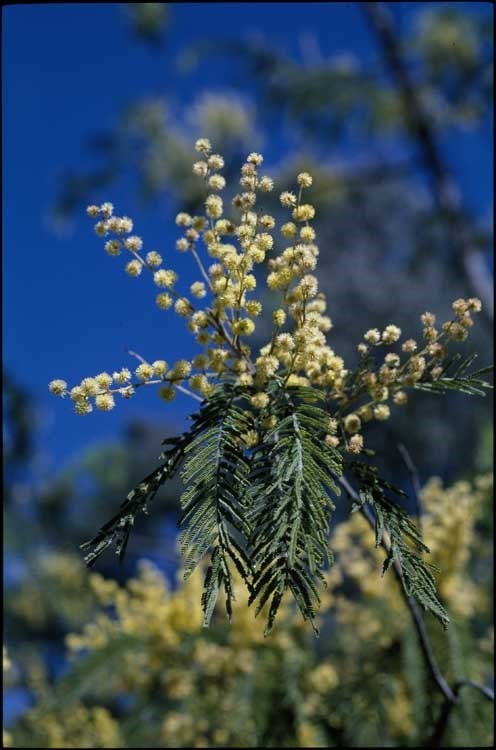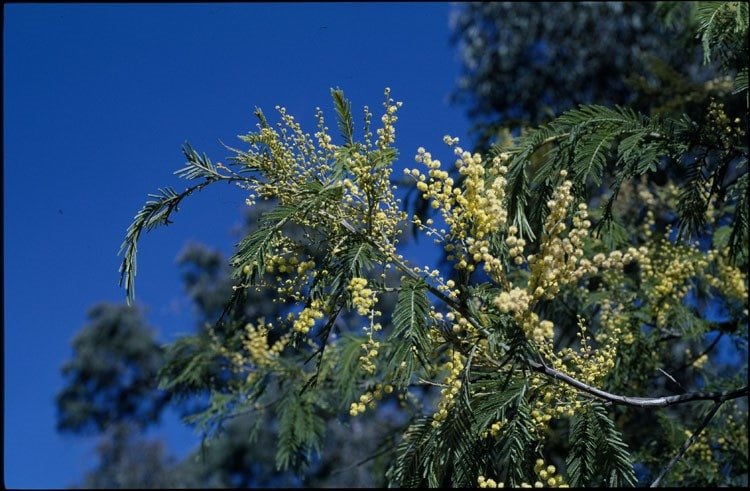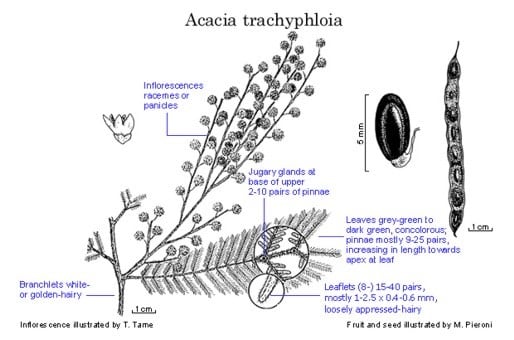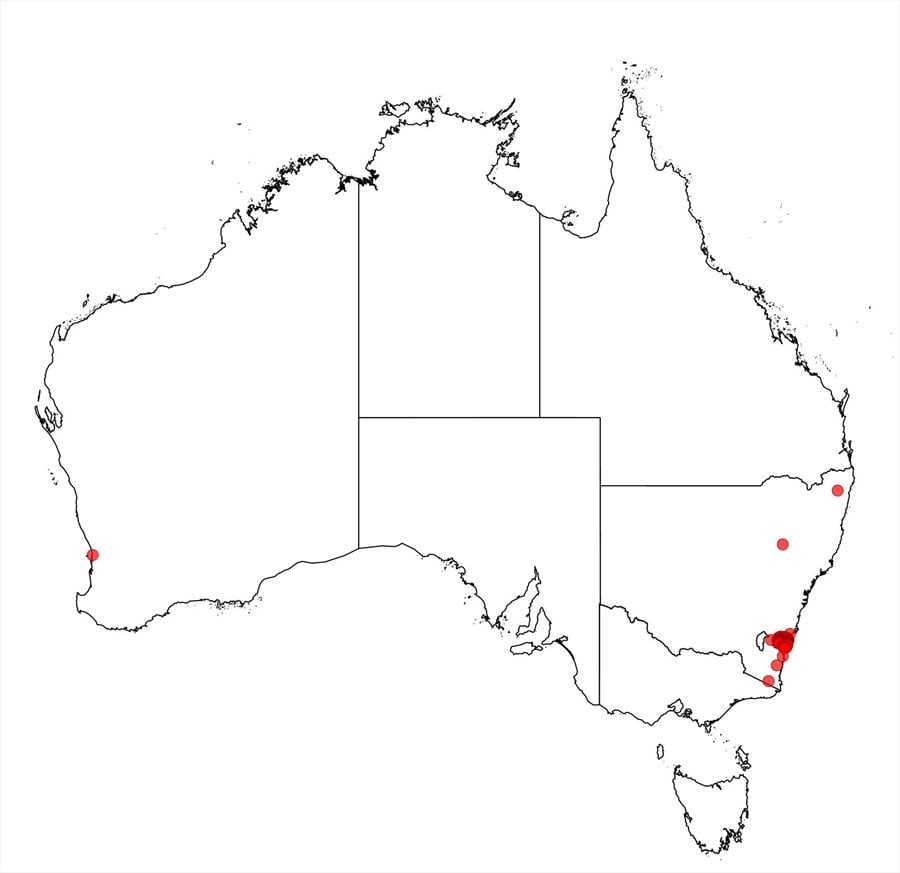Acacia trachyphloia Tindale
WATTLE
Acacias of Australia
Common Name
Golden Feather Wattle, Bodalla Wattle
Family
Fabaceae
Distribution
Occurs on the South Coast and Southern Tablelands, N.S.W., from Conjola to Broulee Beach, W to Braidwood and Monga.
Description
Erect shrub or tree 4–15 (–18) m high. Bark grey, smooth, becoming rough and corrugated. Branchlets terete or slightly angled, white- to golden-villous; ridges c. 0.2 mm high. Young foliage-tips golden, velvety. Leaves herbaceous, soft, greenish grey to dark green; petiole above pulvinus 0.1–0.5 cm long, terete, eglandular; rachis 2–11 cm long, terete, usually with globose, villous glands at base of (or sometimes between) upper 2–10 pairs of pinnae; pinnae (6–) 9–25 pairs, (0.5–) 1–4 cm long, with lower pinnae shorter than others; pinnules (8–) 15–40 pairs, ±narrowly oblong or oblong-elliptic, 1–2.5 (–3) mm long, 0.4–0.6 (–0.8) mm wide, with 1 submedian nerve, clothed especially above with golden or white or subglabrous, loosely appressed hairs, acute or obtuse. Inflorescences in axillary racemes, or terminal or axillary false-panicles; peduncles 1–4 (–6) mm long, hairy to subglabrous. Heads 10–20-flowered, pale to deep yellow. Pods submoniliform, 2–7.5 cm long, 4–8 mm wide, subcoriaceous, dark blue or brownish black, often slightly pruinose.
Phenology
Flowers Aug.–Oct.; fruits Dec.–early Mar.
Habitat
Grows in moist gullies, on alluvial flats or mountainsides, often near creeks, in open or tall open forest, mostly in heavy soils.
Specimens
N.S.W.: Monga State Forest, c. 10 miles [c. 16 km] SE of Braidwood, L.G.Adams 2477 (AD, B, BRI, CANB, CHR, K, L, MEL, NSW, US); Princes Hwy, Termeil, R.Coveny 2916 (AD, B, BRI, CANB, CHR, K, L, LE, MEL, MO, NSW, PERTH, US); Mongo, R.Coveny 7339 (B, CANB, CHR, NSW, NU, PERTH, RSA, TL, Z); Mongo, A.N.Rodd 4267 (MEL, NSW); Durras North, M.D.Tindale s.n. (NSW52177).
Notes
This species is most closely allied to A. oshanesii which differs in the lower surface of the pinnules being very much paler than the upper, and the general vestiture is fawn (golden in A. trachyphloia). Both species are characterised by pendulous branchlets, few glands restricted to bases of the upper pairs of pinnae, and interjugary glands absent.
FOA Reference
Data derived from Flora of Australia Volumes 11A (2001), 11B (2001) and 12 (1998), products of ABRS, ©Commonwealth of Australia
Author
M.D.Tindale, P.G.Kodela
Minor edits by B.R.Maslin & J.Reid
This identification key and fact sheets are available as a mobile application:
URL: https://apps.lucidcentral.org/wattle/
© Copyright 2018. All rights reserved.









